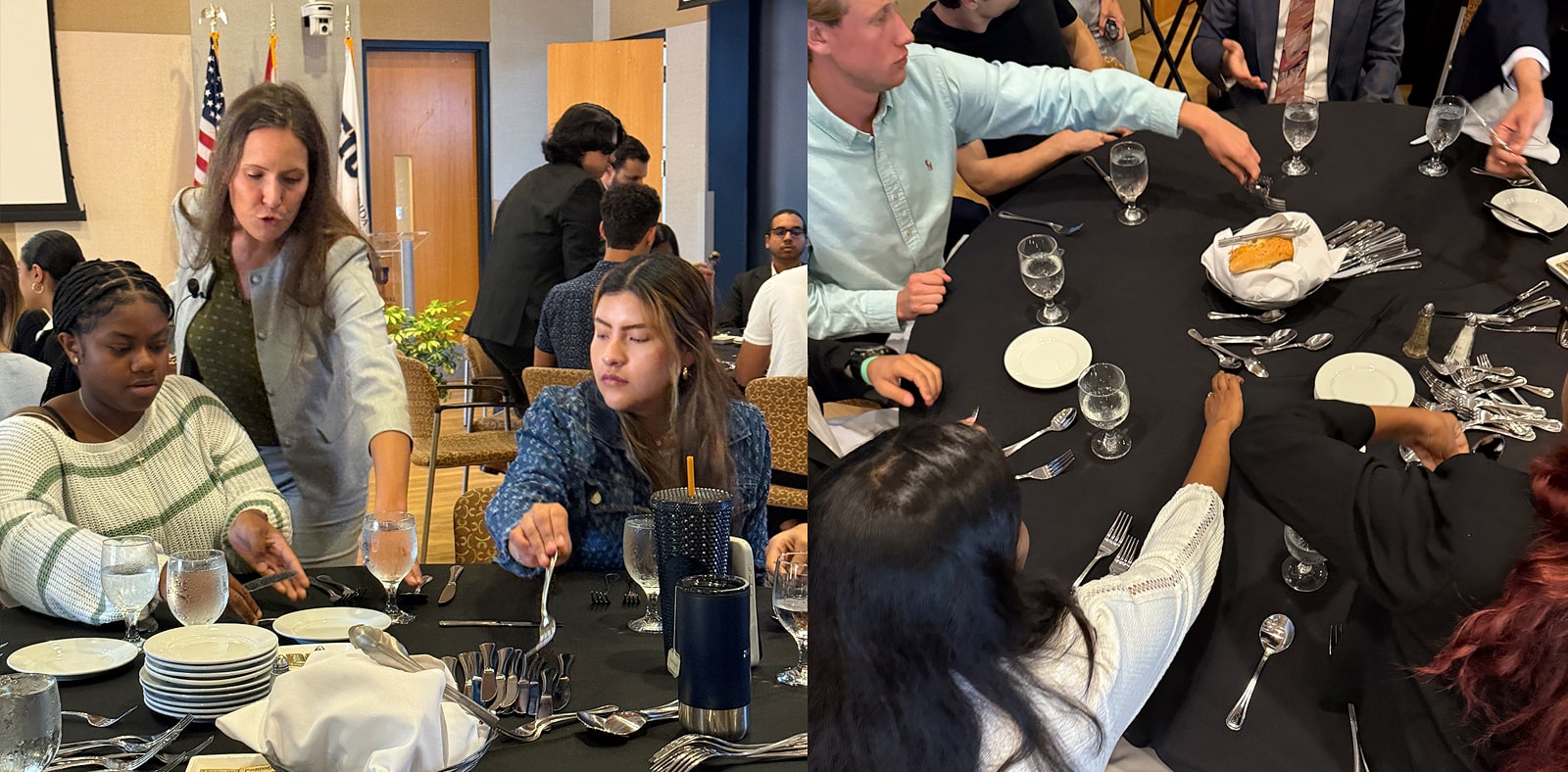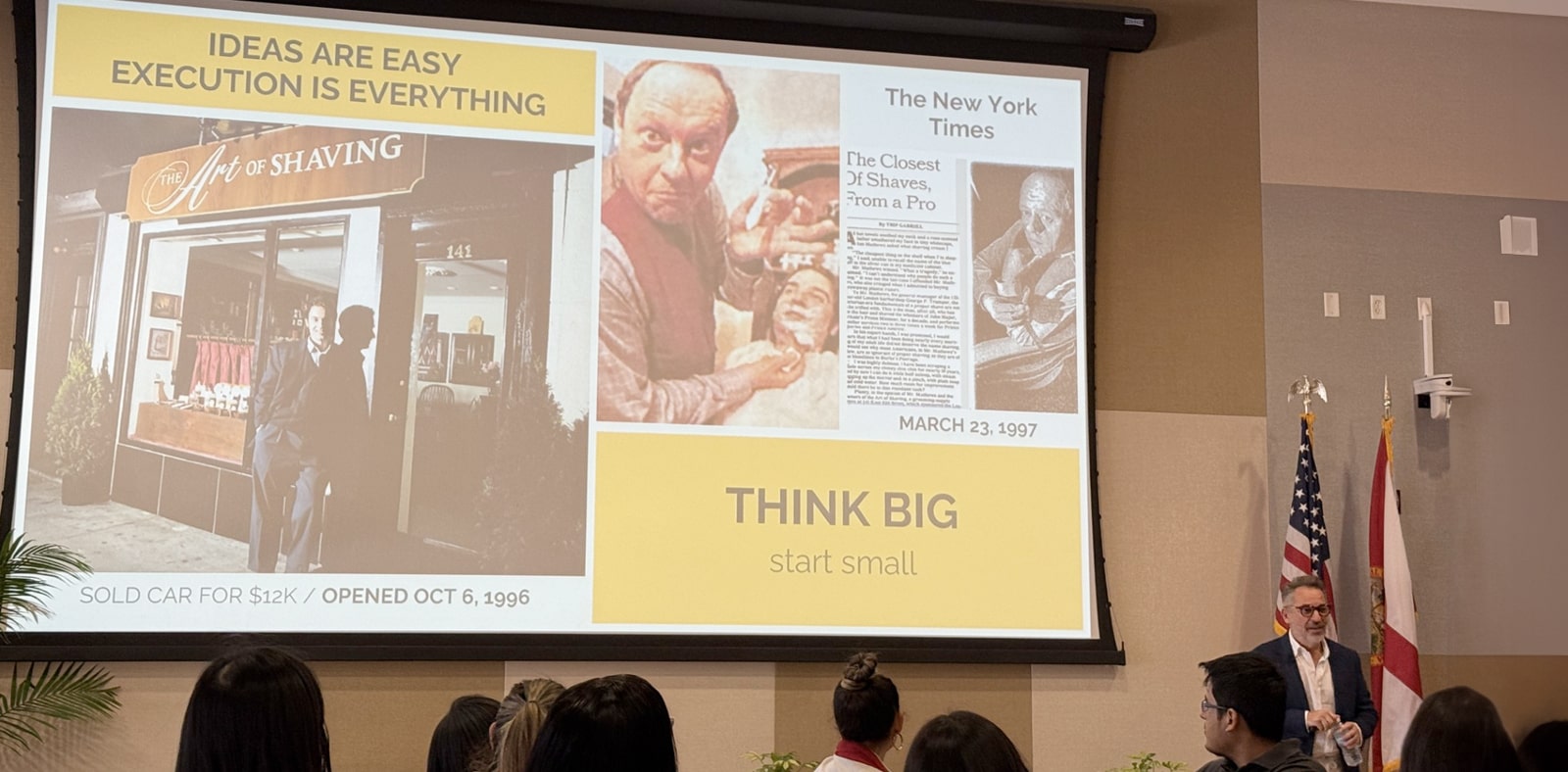FIU Business Career Services and the Blackstone Launchpad at FIU hosted the first ever “Table Talk: Entrepreneurship and Etiquette” workshop on April 17, delivering an engaging, interactive session aimed at equipping students with vital skills for professional success.
Featuring Eric Malka, co-founder and former CEO of The Art of Shaving, and Sammi Rosin Lewis, a certified etiquette instructor and former corporate recruiter at FIU Business, the event offered a dynamic blend of real-world business insights and professional conduct guidance.
“One day, when I do get to bigger, more important tables, I want to know how to conduct myself,” said Cameron Ghandeharioun, currently enrolled in the Healthcare MBA program. “It's a different world, and you want to make sure that you're not out of place in that situation.”
It’s part of a broader vision to give students a competitive edge in both boardrooms and dining rooms.
Malka, an accomplished entrepreneur with over 30 years in the luxury consumer goods sector, shared his journey from humble beginnings in Morocco and Canada, to building a global men’s grooming empire. He emphasized the importance of grit, execution and resilience in launching and scaling up a startup.
“Success didn’t happen overnight,” said Malka, who started his company with $12,000 and grew it into an internationally recognized brand. He recounted how The Art of Shaving caught the attention of Gillette and was eventually acquired by Proctor & Gamble.
"It’s not just a privilege—but a responsibility—for successful entrepreneurs to share their hard-earned wisdom with the next generation,” said Malka. There's no better place to spark that dialogue than with senior entrepreneurship students, right on the edge of their own journeys.”

Sammi Rosin Lewis guides students on properly selecting the correct eating utensils.
Rosin Lewis led students through an etiquette workshop rooted in real-world scenarios. A graduate of the Protocol School of Washington and seasoned HR professional, she underscored the role of etiquette in closing the opportunity gap.
“Confidence is key,” said Rosin Lewis. “How you conduct yourself at the [dining] table can impact how you’re perceived in the boardroom.
Her session covered essential topics including proper napkin use, utensil placement, posture and how unconscious bias can play into hiring decisions. She emphasized the value of etiquette as a silent but powerful communicator in business settings, especially for first generation college students and those from diverse socio-economic backgrounds.
Students were encouraged to participate by eating a four-course meal while they practiced networking and reflected on subtle cues that shape first impressions and professional relationships.
“This is the type of programming that transforms our students, bridging the gap between classroom knowledge and real-world application,” said Rosin Lewis. “This isn’t just about teaching manners or telling stories. It’s about preparing our students to walk confidently into any room — and own it.”

